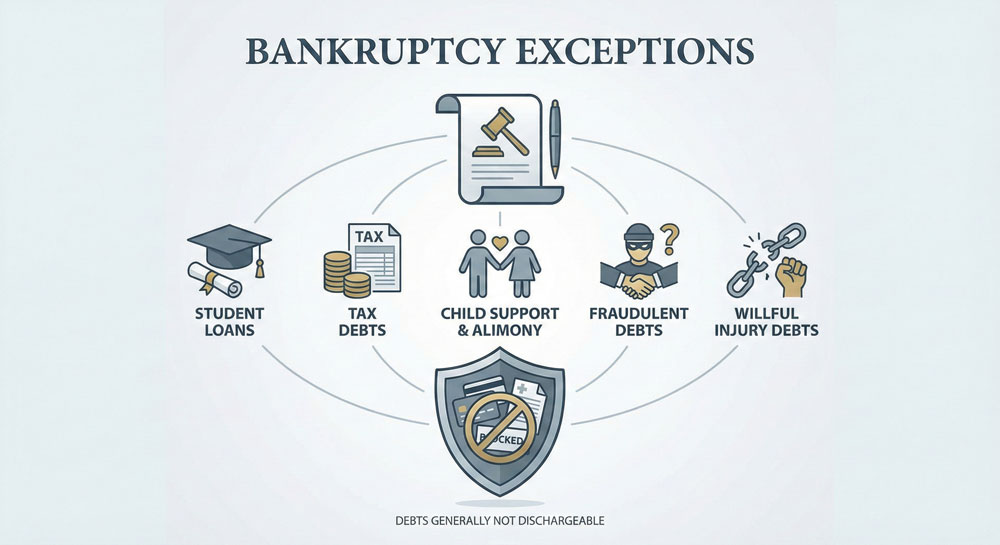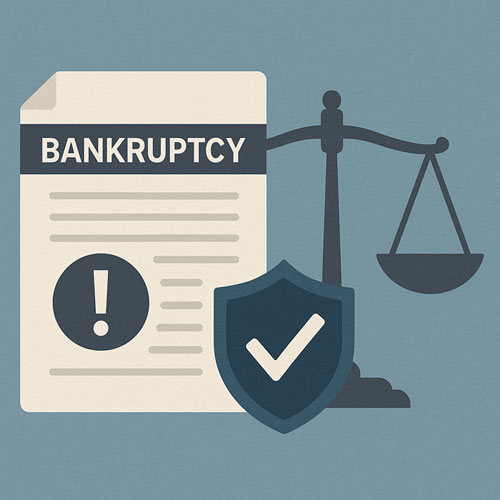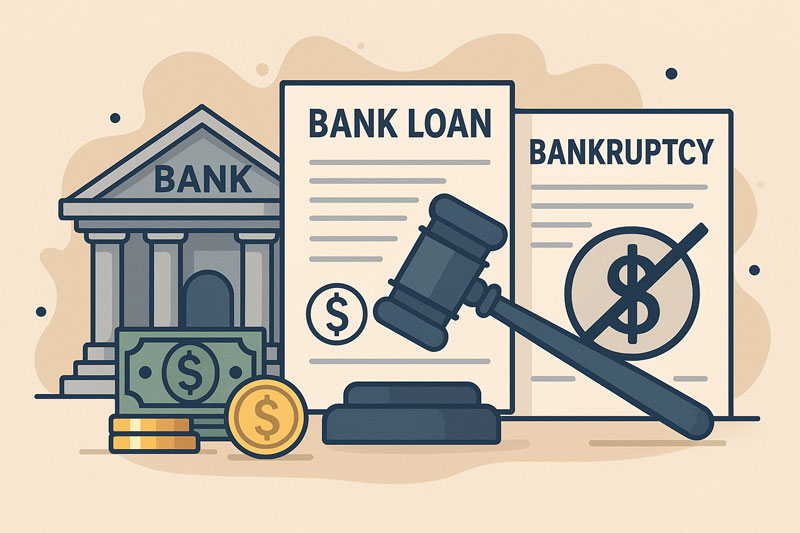What Is The Meeting Of Creditors?
 An excerpt from Bankruptcy: A New Beginning by Seth Hanson
An excerpt from Bankruptcy: A New Beginning by Seth Hanson
When people come into my office to file bankruptcy, most are relieved to learn they can get rid of debt they’ve been carrying around for years. Many people are nervous, though, about the mandatory meeting of creditors (also known as a 341 meeting). A lot of that nervousness comes from not understanding the bankruptcy process or how a meeting of creditors works. So let’s take a closer look what you can expect at your meeting of creditors.
I Will Be There With You
The first point to understand is that you’re not alone. I, or another attorney in my place, will attend the meeting with you. Once my clients understand this, they almost immediately feel a sense of relief. It is also important to understand that the bankruptcy trustees, who preside at the meetings, are just there to do their job, not make your life harder. I know all of these trustees, having worked with them for many years. They’re not out to trick you. They’re just there to do their job.
Location
The meeting of creditors is required for anyone filing Chapter 7 or Chapter 13 bankruptcy. It typically takes place at a conference room in a federal building. The Eastern District Bankruptcy Court has trustee meetings in Sacramento, Modesto, Fresno, Redding, and Bakersfield. The Northern District Bankruptcy Court has trustee meetings in Oakland, San Jose, San Francisco, Salinas, Santa Rose, and Monterrey. While the meetings are open to the public, typically only the bankruptcy trustee and other debtors and their attorneys waiting to have their case heard will be in attendance. In rare instances creditors will be present at the meeting.
Purpose
Why are you required to attend a meeting of creditors? In a nutshell, the bankruptcy trustees want to ensure that you’ve been accurate and truthful in your bankruptcy petition. Chapter 7 trustees want to determine if you have any property that can be liquidated to pay off creditors. Chapter 13 trustees use this meeting to ask questions about your proposed plan, your debts, your ability to satisfy the terms of your plan, and to make sure your plan is confirmable.
Timing
The meeting of creditors will take place at least 21 days but no more than 40 days after you file bankruptcy. The meeting typically lasts no more than 5 minutes, although you may be sitting for 30 minutes or so waiting for your case to be called.
What To Bring
Typically, the only things you’ll need to bring are your driver’s license and your social security card. However, the bankruptcy trustees require some or all of the following documents to be provided at least a week in advance of the meeting:
- tax returns
- mortgage documents
- bank statements
- paystubs
If my office does not already have these items, we will get in touch with you to obtain them. Then we will provide them to the trustee so they can be reviewed in plenty of time prior to the meeting.
Typical Chapter 7 Questions
Before the meeting of creditors, the Chapter 7 bankruptcy trustee will review your bankruptcy petition. If there is any confusion or missing information the trustee will discuss them with you at the meeting of creditors. Typical Chapter 7 bankruptcy trustee
questions may include:
Did you review the bankruptcy petition, schedules, and documents before they were filed with the court?
- Was all the information true and correct when you reviewed it?
- Did you sign the various bankruptcy papers before they were filed with the court?
- Are there any changes or corrections you need to make to the paperwork?
- Have there been any changes in your finances since you filed your bankruptcy?
- Have you filed for bankruptcy before?
- Did you list all your creditors on your bankruptcy petition?
- Have you disclosed all of your assets and income?
- Have you sold or transferred property in the past two years?
- How did you determine the value of your assets?
If there is a question you don’t understand or can’t answer, don’t worry. I’ll be right by your side to help clarify the question and help the trustee obtain the information requested. It is important to not guess about things or give inaccurate answers.
Typical Chapter 13 Questions
A Chapter 13 trustee meeting is quite different than a Chapter 7 trustee meeting. A Chapter 7 trustee makes a commission on assets he or she is able to liquidate, so the trustee will focus a lot more on your assets. There is no liquidation in a Chapter 13 case, so the Chapter 13 trustee is not as focused on assets. Instead, the Chapter 13 trustee focuses a lot on your income and your expenses in order to make sure you are paying everything that you are required to pay to your creditors. So the trustee will ask about your income and your expenses. The Chapter 13 trustee also wants to make sure you can afford the plan payment we have proposed and will ask you so.
The Chapter 13 trustee will make sure that each creditor is given appropriate treatment in your plan. The Chapter 13 trustee will also ask if you have filed your taxes for each of the past 4 years if you were required to do so. The Chapter 13 trustee pays very close attention to all aspects of the bankruptcy petition, schedules, and statement of financial affairs. In comparison to a Chapter 7 case, a Chapter 13 case receives far greater scrutiny. That is one of the reasons it is so difficult to succeed in a Chapter 13 case without an experienced Chapter 13 attorney. But not to worry. If you have difficulty answering the trustee’s questions, I will be right by your side to help.
Creditors
Typically, most creditors do not attend the meeting of creditors unless they have questions or concerns about your bankruptcy petition, assets or income. Creditors may also attend this meeting if you’re surrendering property in bankruptcy such as a car or house.
For more information contact your Stockton bankruptcy attorney.
Categorized in: Filing Bankruptcy



